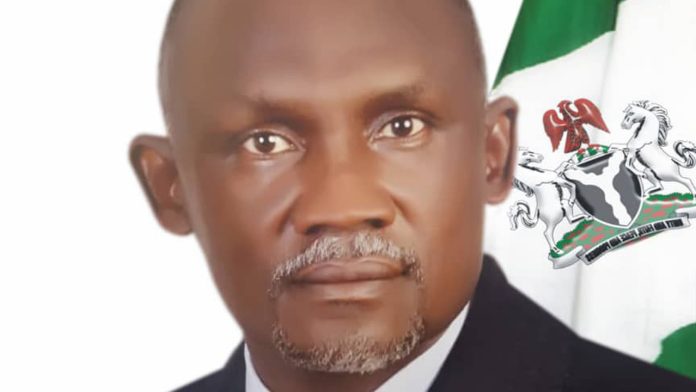The Minister of Budget and Economic Planning, Senator Abubakar Bagudu, has urged the commissioners of finance, budget and planning in states to work together to deliver the goals of the Nigeria Community Action for Resilience and Economic Stimulus (NG-CARES) programme.
The minister who gave the admonition on Wednesday in Abuja while speaking at a stakeholders consultative meeting on the NG-CARES Additional Financing said rather than each one trying to defend his territory or not talking to the other on what they are doing, they should remember that the common goal is for the well-being of the people.
“There should be no competition after all you are serving the same government,” he said, adding, “In our match to a $1 trillion economy by 2030, we should all work together as a team.”
The meeting was attended by the Commissioners of Finance from the 36 states, as well as those of Budget and Planning, Heads of state care coordinating units (SCCU), and Heads of delivery platforms (DP) under the NG-CARES Programme.
NG-CARES is a programme developed by the Federal Government of Nigeria with $750 million in assistance from the World Bank. Its primary goal is to mitigate the effects of the COVID-19 pandemic on the livelihoods of poor and vulnerable households, communities, and microenterprises. It is run on a programme for a result basis, meaning that states only get reimbursement after implementing the programme and are adjudged satisfactory by an independent verification agent. The first phase of the programme ended early this year, but the World Bank approved an additional $500 million for a second phase following the success of the first phase.
While the bank disbursed funds of $645 million, the 36 states and the FCT have implemented projects valued at $2.2 billion.
The minister stated that the design of the NG-CARES programme aligns with the Federal Government’s development priorities as outlined in the National Development Plan.
He said, “The Ministry of Budget and Economic Planning regards it as an obligation to empower the states and the FCT in the design and delivery of economic programmes aimed at mitigating and responding to various crises.”
He noted the diverse and severe impacts of various crises resulting from climate change, civil strife, natural disasters, and the consequent socio-economic shocks that have continued to pervade developing countries around the world, including Nigeria. He stated that as a result of these, the livelihoods of the poor and vulnerable, informal businesses, and particularly households that rely on daily income, as well as peasant farmers who depend on their produce for survival, have been severely impacted.
Bagudu stated that the implementation of NG-CARES programmes yielded remarkable outcomes, benefiting over 16 million direct beneficiaries across the 36 states and the FCT. He said it was based on the outstanding results achieved under the current NG-CARES programme, the state governments, through the Federal Government, requested Additional Financing (AF) of $500 million.
“By design, the NG-CARES AF will expand coverage, build resilience, and strengthen institutions,” he said, adding that the NG-CARES AF will progressively upscale the successes achieved under the existing programme, foster stronger coordination mechanisms between the federal and state governments, strengthen service delivery platforms at all levels, and accelerate the implementation of programmes to address the current crisis, among other benefits.
The minister noted that he called the meeting so the stakeholders could review what happened in NG-CARES 1.0 and plan on how to improve the effectiveness of 2.0, as well as share experiences from different states.
Also speaking, the World Bank Task Team Leader, Dr. Lire Ersado, while commending the states for their outstanding performance, said that NG-CARES 2.0 represents a shift from emergency to building resilience. He said, “Shocks are becoming more natural, so we want to build a system that will help the people absorb the shock when it comes.
NG-CARES 2.0 – Additional Financing
He said given the impressive results achieved in NG-CARES 1.0, the Government of Nigeria requested the continuation and expansion of the programme.
“With appreciation of the many challenges facing Nigerians and a multifaceted support NG-CARES is providing and well suited to continue to provide, the World Bank agreed to process an additional financing (AF) of $500M,” he said.
“The AF will help ensure the sustainability of the programme results so far achieved and incentivise the states to continue their support to the poor and vulnerable.”
THE GUARDIAN


